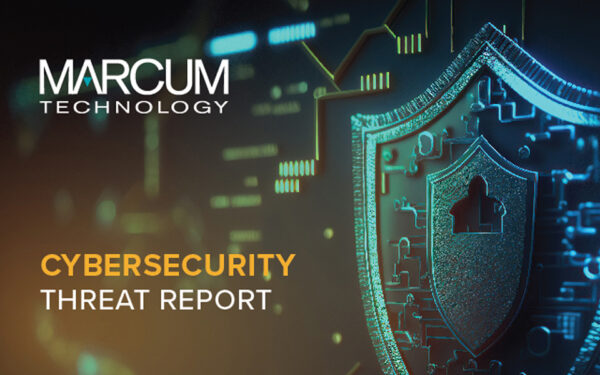Identity Theft in the Age of COVID: It can be a Family Affair
By Kyle Anne Midkiff, CPA, CFE, CFF, Partner, Advisory Services
Identity theft is an unfortunate fact of modern life. Protecting our social security numbers, health care insurance cards, bank account information, driver’s licenses, and computer passwords against misappropriation is critical in our digital world. And the risks are only getting riskier. In addition to financial identity theft, we also have to guard against criminal identity theft1, elderly identity theft, government identity theft2, medical identity theft3, and military identity theft4.
The latest identity theft scams stem from COVID-19. Stolen identities are being used to try to obtain Coronavirus Stimulus Funds. Individuals are now filing claims with stolen identities for unemployment benefits.5 Additionally, the Paycheck Protection Program (PPP), provided under the CARES Act,6 has made billions of dollars available in federal aid for small businesses hurt by the COVID-19 pandemic. Federal prosecutors are now bringing the first cases of alleged fraud used to obtain PPP loans. The PPP frauds to date include committing identity theft by filing for the PPP loans on businesses not owned by the borrower.
Spousal or Family Identity Theft
Identity theft committed by a spouse or other family member is rarely discussed but is actually quite prevalent. Identity theft can be complicated and frustrating to deal with when the fraud is committed by a stranger, but it can be especially difficult if you find that a family member has used your personally identifiable information (“PII”) to open bank accounts or credit cards or to take out loans in your name. Spousal identity theft is actually easier to commit than other kinds of identity theft because the perpetrator has easy access to the other’s PII. This can severely harm the victim’s credit rating, not to mention their relationship with the family member committing the fraud. If you have incurred debt because of your spouse’s unauthorized use of your information, you will need to report the fraud to your local police. This is necessary to prove you were the victim of an identity theft, and you will need to press charges. This may be the only way the debt can be written off.
Financial Infidelity
Spousal identity theft is a form of financial infidelity. Financial infidelity is the act of spending money, borrowing money, obtaining and using credit, and making other financial decisions without the knowledge of one’s partner or spouse, which may negatively affect the financial condition of the relationship.
Case Example – Identity Theft through Forged Loan or Credit Card Applications
I have investigated numerous situations in which fraudsters took pre-authorized credit card applications sent to family members in family businesses. The fraudster then forged the signature of the family member, obtained the credit card when it arrived in the mail, and activated the card. Of course, the activation was done from the business telephone associated with the family member whose name was on the application. The card was then utilized for purchases and cash advances unbeknownst to the individual named on the card. In many instances these cards were used to obtain cash for gambling or bad debts. Needless to say, the spending on these falsified credit cards was run up to the maximum limit. By the time the credit card owner found out, the credit limit was maxed out and payments were severely delinquent. Until the situation could be rectified, the credit card owner’s credit scores and credit reputation were severely damaged.
Could this identity theft have been prevented?
Could this problem have been prevented or stopped early? Possibly. If the family member reviewed their credit report on a regular basis they would have seen credit cards, account balances, and delinquent debts they did not recognize. Also, they could have put a freeze on their credit report which would have let any lenders know that no additional accounts could be opened in their name.
When this kind of identity theft is perpetrated by a spouse, it is important to know that a divorce doesn’t necessarily resolve the debt problems for both parties, as creditors are not bound by the divorce agreement in many states. Creditors can, in fact, seek repayment from either spouse regardless of what the divorce agreement or a court order says. If one defaults on paying off a credit balance, the creditor can go after the other spouse.
Steps to Prevent Identity Theft before It Occurs or Catch It Quickly
- Make sure you monitor your credit and regularly review your Credit report. Unexplained changes to your credit report can be a red flag indicating an identity theft.
- Review your bank accounts and bank transactions on a regular basis.
- Review your Social Security earnings (https://www.ssa.gov/myaccount).
- Consider identity theft protection services. Companies that provide identity theft protection services also provide monitoring and recovery services. The monitoring services watch for signs that an identity thief may be using your PII. (Recovery services assist you in dealing with the effects of the identity theft after it happens.) Most identity theft protection services also offer identity theft insurance, which generally only covers out-of-pocket expenses incurred in reclaiming your identity.
- Perform a public database search on yourself by checking Google, White Pages and other online directories that publish individuals’ names, addresses or personal information. Check all variations of your name with and without middle names and initials, professional name, maiden name, or others.
How can identity theft victims clear their records?
- Consult the following websites:
Federal Trade Commission at https://www.identitytheft.gov7
Office of the Inspector General of the Social Security Administration at https://oig.ssa.gov
- Identity Theft Resource Center at https://www.idtheftcenter.org
- Notify the Major Credit Reporting Agencies
Experian, Equifax and TransUnion should all be notified. (Experian: 888-397-3742; Equifax: 888-548-7878, and Trans Union: 800-888-4213). You can flag your credit report with a fraud alert immediately through their automated systems. Follow up with a letter to each credit bureau documenting the identity theft and accounts that were fraudulently created and used. Request additional free credit reports. - Report the identity theft to the local police. (It is helpful to provide a copy of your recent credit report with the relevant fraud highlighted or pinpointed).
- Obtain as much information as possible on the accounts used for fraud.
- Call your creditors to close any accounts fraudulently created in your name.
- Execute a fraud or ID theft affidavit which you will need to send to creditors and the credit bureaus.8
- If you are using an identity protection services company, use their recovery services to help you reclaim your identity.
Stay Vigilant
It is not possible (yet) to completely eliminate the risk of identity theft. But staying vigilant, safeguarding your personal documents, and regularly reviewing your account statements and credit reports can help protect you from identity theft.
For questions or assistance, contact your Marcum professional.
Coronavirus Resource Center
Have more questions about the impact of the coronavirus on your business? Visit Marcum’s Coronavirus Resource Center for up-to-date information.
Sources
- Criminal identity theft is where someone uses another’s identity when arrested or charged with crimes. It may come to light when a victim undergoes a background check for a new job.
- Government identity theft is when a theft steals the identity of someone to qualify for government benefits such as tax refunds from the IRS, and Medicaid/Medicare or Social Security benefits.
- Medical identity theft is using a stolen identity to get insurance benefits for medical treatment.
- The identities of members of the military are stolen more often than regular identities. Military personnel are especially at risk for identity theft when deployed overseas.
- U.S. Attorney’s Office, Eastern District of Pennsylvania, June 5, 2020 “U.S. Attorney McSwain and PA Attorney General Shapiro Warn Pennsylvanians of Coronavirus Related Unemployment, Identity Theft Scams.”
- The CARES Act is officially known as the Coronavirus Aid, Relief and Economic Security Act. It was signed into law by President Donald J. Trump on March 27, 2020.
- IdentityTheft.gov is the federal government’s one-stop resource for identity theft victims. The site provides streamlined checklists and sample letters to guide you through the recovery process.
- An identity theft affidavit is a document that can help victims prove that their PII has been used to open a fraudulent account. The FTC developed a standard form entitled “Identity Theft Victim’s Complaint and Affidavit”. Also the IRS has its own “Identity Theft Affidavit”, form 14039 (OMB Number 1545-2139).




















